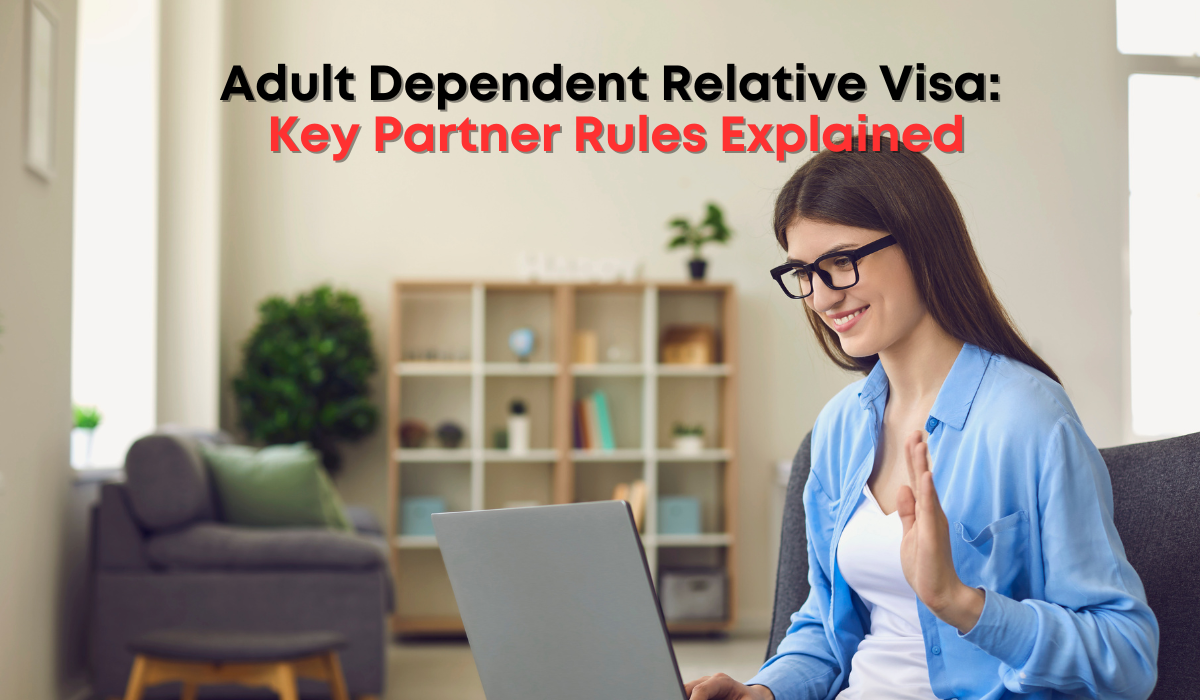The UK’s Adult Dependent Relative Visa offers a lifeline to families seeking to bring elderly, unwell, or disabled relatives to the UK. However, this immigration route is fraught with complexities, particularly when the applicant has a partner. As immigration solicitors, we frequently encounter questions about how a partner’s circumstances might affect an application’s prospects of success. This reflective article unpacks the intricate requirements and challenges under Appendix Adult Dependent Relative (‘ADR’) of the Immigration Rules, offering insights for families navigating this legal pathway.
Understanding the Basics of the Adult Dependent Relative Visa
The Adult Dependent Relative Visa is designed for specific family members of British citizens or settled persons in the UK. To qualify, applicants must meet stringent criteria, including demonstrating that they require long-term personal care due to age, illness, or disability, and that such care is unavailable or unaffordable in their home country. The sponsor must also guarantee that the applicant will be adequately maintained and cared for in the UK without recourse to public funds.
The partner requirement under Appendix ADR introduces an additional layer of complexity. According to paragraph ADR 5.3A.1:
“If the applicant is the sponsor’s parent or grandparent they must not be in a subsisting relationship with a partner, unless that partner is applying for entry clearance or permission to stay as an Adult Dependent Relative at the same time.”
Let’s explore how these rules apply in various real-world scenarios.
Scenario 1: Your Grandmother Requires Care, But Your Grandfather Does Not
In this scenario, one grandparent (the grandmother) has long-term personal care needs, while the other (the grandfather) is in relatively good health. While Appendix ADR allows for one partner to meet the care needs requirement, the dependency requirements in paragraph ADR 5.2 add a critical nuance:
“The applicant… must be unable to obtain the required level of care in the country where they are living… because either the care is not available… or it is not affordable.”
Here lies the challenge: the Home Office may expect the healthier partner to provide care. If the healthier grandparent can reasonably meet the care needs, the application is likely to fail. Success depends on demonstrating that the healthier partner cannot provide adequate care, either due to their own limitations or the severity of the other partner’s needs.
Scenario 2: Only One Parent Wishes to Move to the UK Permanently
Imagine a scenario where a sponsor’s mother has significant care needs, but the father, still active in his professional life, does not wish to relocate. Unfortunately, under paragraph ADR 5.3A.1, both parents must apply simultaneously if they are in a subsisting relationship. It is not permissible for one parent to use the ADR route while the other opts for a different visa category. This inflexible rule can create significant barriers for families in such situations.
Scenario 3: Parents Are Separated But Legally Married
What if the parents are legally married but no longer in a subsisting relationship? In this case, the sponsor’s father, who requires care, may apply independently if the mother is not functionally involved in his life. The key lies in proving that the marriage exists only in a legal sense and not in practice. The Home Office will assess the factual reality of the relationship rather than its formal status.
Scenario 4: The Grandparent’s Spouse Is Not Related to the Sponsor
When a grandparent remarries, complications arise if the new spouse is not related to the sponsor. According to Home Office guidance, only partners who are also the sponsor’s parent or grandparent may apply under the ADR route. Furthermore, the new spouse’s ability to provide care may lead to the application being denied, as the Home Office presumes a capable partner exists to meet the care needs.
The Importance of Meeting the Care Dependency Requirements
One recurring theme across these scenarios is the dependency requirement under paragraph ADR 5.2. Success hinges on proving that the required level of care is unavailable or unaffordable in the applicant’s home country. Medical evidence, detailed care assessments, and records of attempts to secure care in the home country are critical in building a strong application.
A Reflection on Family Dynamics and Legal Complexities
As Tolstoy famously wrote in Anna Karenina, “All happy families are alike; each unhappy family is unhappy in its own way.” This sentiment resonates deeply with the challenges faced by families seeking to bring loved ones to the UK through the Adult Dependent Relative Visa route. The interplay of legal requirements and individual circumstances creates a unique maze for each family to navigate.
For families, understanding the impact of a partner on the application is critical. Whether it is proving the unavailability of care or demonstrating the lack of a subsisting relationship, each case presents its own hurdles. With the right legal guidance and thorough preparation, families can overcome these challenges and find a way forward.
Next Steps: Seeking Legal Advice
Given the complexity of the Adult Dependent Relative Visa route, we strongly recommend consulting a specialist in immigration law. Our team of experienced solicitors can help evaluate your family’s unique situation, advise on the best course of action, and assist in preparing a compelling application.
For further insights, read our related article on Proving Unavailability of Care or contact us for a tailored consultation.
Get in touch: For a comprehensive understanding of your options or queries on UK immigration matters, contact GigaLegal Solicitors at 02074067654 or click here to book a no-obligation consultation with an immigration expert.


